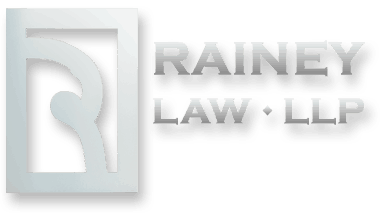“I want to control my property while I’m alive; take care of myself or my loved ones if one of us becomes disabled; and give what I have, to whom I want, the way I want, and when I want. Furthermore, if I can, I want to save every tax dollar, professional fee, and court cost legally possible.”
When should you consider Estate Planning?
The Firm offers personalized Estate Planning and Asset Protection; Will, Trust, and Estates; Trust Administration, Probate, Estates, and Guardianships.
Estate and Trust Planning
Every family is unique and no two situations are the same. We will create a plan that accurately reflects and properly implements your goals specifically tailored for you and your family.
Living Trust Packages include the Living Trust, Durable Powers of Attorney, Health Care Directives, and Certificate of Trust. Our clients receive a complete Estate Portfolio Binder containing all documents. Our Firm will complete all transactions to transfer all assets into the named Trust.
It all begins with a complimentary consultation, with an upfront guaranteed package price.
To get started on your Estate Plan, click here for a link to the Estate Planning Online Worksheet.
If you have an estate plan and need to make changes to your plan, please consider filling out and submitting our Online Estate Planning Update Worksheet. If you’re not sure when you should have your estate plan reviewed or what life changes would prompt an update to your estate plan, Click here to view When Should I Have My Estate Plan Reviewed?
Wills
Will packages include Durable Powers of Attorney, Advance Directives for Health Care, and related medical authorizations. Caution: Assets passing to beneficiaries under a Will do NOT avoid probate.
Click here to view “Do You Need a Trust as Part of Your Will?”
Click here to view “Your Will as Written by the Oklahoma Legislature.”
Probate and Estates
We enjoy helping our clients avoid probate through a Living Trust or other Estate Planning devices. Sometimes a loved one passes away without having completed any estate planning. In those situations, our Firm can assist the executor or family member with the legal steps to implement and complete the Probate and transfer of assets. The traditional term “Probate” refers to the legal process of administering the estate of a deceased person by resolving all claims and distributing the deceased person’s property under a valid will, if one exists, or if one doesn’t through what’s called an intestate (without a will).
Click here to view “What is the Probate Process?” for more information.
Guardianships
This area involves court supervised management of the person and/or property of either a minor child or an incapacitated adult. The law provides for specific procedures for this process, and our Firm has the expertise to help our clients comply with the requirements of guardianship law.
Supplemental Needs Trusts
 Government programs – in Supplemental Security Income (SSI) and Medicaid – are important for people with disabilities in need, as they provide cash benefits and important medical coverage and long term support and services. The income level and financial resources of an individual with a disability, or family applying on behalf of their child with a disability, must not exceed a certain level in order qualify for these government benefits. Benefit recipients may retain only a limited amount of assets, with some exceptions. A person with a disability receiving SSI, who accumulates any significant cash resources, may lose SSI and, possibly, Medicaid.
Government programs – in Supplemental Security Income (SSI) and Medicaid – are important for people with disabilities in need, as they provide cash benefits and important medical coverage and long term support and services. The income level and financial resources of an individual with a disability, or family applying on behalf of their child with a disability, must not exceed a certain level in order qualify for these government benefits. Benefit recipients may retain only a limited amount of assets, with some exceptions. A person with a disability receiving SSI, who accumulates any significant cash resources, may lose SSI and, possibly, Medicaid.
Government cash benefits provide only for the bare necessities: food, shelter, and clothing. They amount to less than a federal poverty level income. As we all know, there are more things and activities beyond these basics that add quality to life. For a parent planning for the future of their child with special needs, this poses a potential problem.
When parents can care for their child, they provide the extras beyond the bare necessities to make their child’s life comfortable. But who will provide those resources when they are not there to do so?
If parents leave any assets to their child receiving government benefits, they risk disqualifying the child from receiving government benefits. If they leave assets to another family member or other person for the care of the child, they open other avenues of risk where the child might not get the benefit of those assets, such as divorce, bankruptcy, lawsuits, and financial mismanagement.
Fortunately, the government established rules allowing assets to be held in trust for a recipient of SSI and Medicaid, if certain parameters are met.
These trusts, called Supplemental Needs Trusts or Special Needs Trusts , preserve government benefit eligibility and leave assets that will meet the supplemental needs of the person with a disability – those that go beyond food, shelter, and clothing and the medical and long term supports and services of Medicaid.
Click here to view “The Supplemental Needs Trust” for more information.
- On this page:
- Online Estate Planning Update Worksheet
- Printable version of the Estate Planning Worksheet
- Download the Latest Adobe Reader
- When Should I Have My Estate Plan Reviewed?
- Do You Need a Trust as a Part of Your Will?
- Your Will as Written by the Oklahoma Legislature
- What is the Probate Process?
- The Supplemental Needs Trust
- Related:


